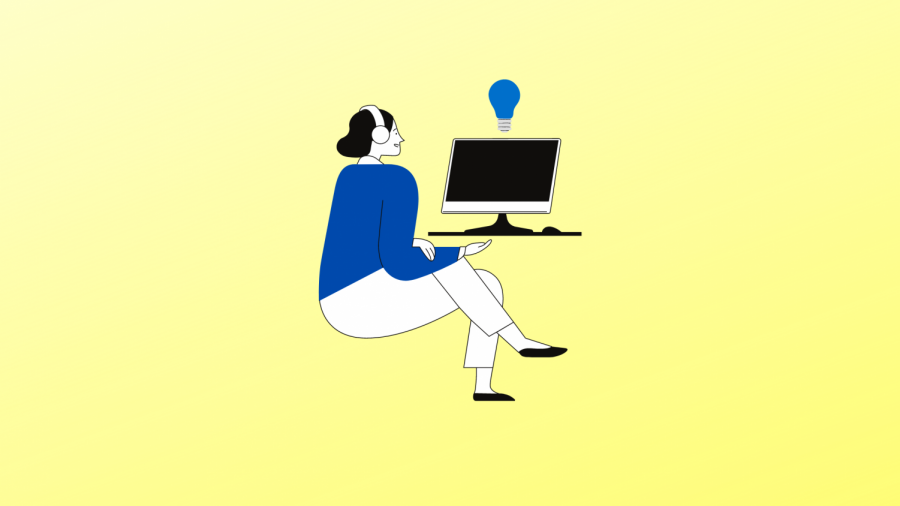Online learning comes with harmful dangers to blue light emissions
October 22, 2020
As junior Ceci Fettorolf stares deeper into her screens, pixel by pixel, blue light emissions are blocked from her eyes because of her protective blue light glasses that she wears for school. Since students and teachers across the country started school online this year, they stare at their computer screens for about seven hours a day now which emits large amounts of blue light. English teacher Mrs. Finny does not wear blue light glasses but takes time throughout her day to step away from her screen.
“I turn down the brightness on my computer to reduce the amount of blue light I receive and step away from the computer during my classes to reduce screen time,” said Mrs. Finny.
On top of the seven hours, students have exams, textbooks, and homework online, which increases that seven hours of screen time into nine-eleven hours of screen time. The same applies for teachers who now grade, teach and create assignments online.
Blue light is the exposure to short blue wavelengths which causes higher amounts of energy. Blue light is great for our productivity and awareness during the day, but harmful at nighttime causing you to stay awake longer. Blue light is in our everyday technology. Phones, TV, computers; you name it.
There are negative consequences, specifically to our eyes, with the overexposure of blue light emissions. This includes eye strains, retina damage, and overall permanent eye damage that could cause blindness. Junior Ryan Palmer wears regular prescribed glasses that have blue light built into the lens and notices a significant difference when he doesn’t wear them for online learning.
“I notice when I wear my glasses my eyes aren’t as ‘heavy’ as they usually would be,” Palmer said.
Blue light doesn’t just affect your eyes, it can affect your circadian rhythm. Our circadian rhythm is our personal biological clock. Our brain tells us when to go to bed and when to wake up. Our circadian rhythm is affected just as much as our eyes. This is because of the usage of our devices at night time and the blue light at night causes our body to stay awake longer then it should.
There are solutions to preventing blue light exposure. The most common solution to prevent blue light exposure is to wear blue light filtered glasses. You can easily purchase a pack of 2 on Amazon for around $15. Ceci Fettorolf utilizes her blue light glasses everyday for online learning purposes.
“[The glasses] allow me to work for longer periods of time, making me productive throughout the day,” Fettorlf said. Another great solution is to purchase a filter for your computer. The computer filters go for about $20. A free way to decrease blue light emissions is to decrease your screen time. A perfect example of this is student junior Ethan Supplee.
“I don’t wear blue light glasses, but I do limit my screen time on my phone outside of school,” Supplee said.
This is very important because when students are done on their computers, they can easily resort back to their phones as a source of “relaxation,” which emits more blue light into your eyes and disrupts your brain. In addition, students can utilize the blue light filter provided on their Chromebooks. You can do this by clicking on the bottom right hand corner where the time, date, and battery percentage is, click on that, and click Night Light, which will activate the blue light filter on your Chromebook.
“[At night] I try to turn down my brightness because blue light affects your body’s sleep schedule,” Palmer said.
It is unknown when in person learning will resume. Students might be able to go back as soon as November or December or possibly not go back at all, so it is imperative that we protect our bodies as we remain online students.









